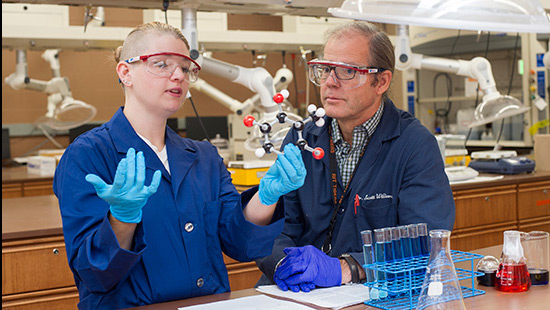
Scott Williams
Professor
Scott Williams
Professor
Select Scholarship
Summer Faculty Fellowship Program - Air Force Research Laboratory
Amount: $27,840
Currently Teaching
In the News
-
September 5, 2023
![black and white image of a flower.]()
The Silver Eye : Jacques Revon : A magical story, that of an alternative developer
The Eye of Photography talks to Scott Williams, professor in the School of Chemistry and Materials Science, about alternative developers used to develop photographic film and paper. (This content requires a subscription to view.)
-
May 6, 2021
![student posing with aquarium tank and homemade measuring equipment.]()
Modular 3D-printed instruments allow science students to conduct experiments at home
How do you teach students to use scientific instrumentation when a pandemic forces classes online and the students have no access to the usual lab or analytic equipment? Adjunct Professor Bruce Kahn found a creative solution this spring while teaching an experimental techniques class.
-
November 8, 2023
Interdisciplinary team publishes article on paper mill sludge
-
March 27, 2023
Team publishes article
-
September 2, 2022
Team publishes paper in ‘Materials Letters’
-
April 13, 2022
Williams honored by Institute for Conservation
Featured Work
Identifying Counterfeit Pharmaceuticals
Taylor Wolf ’18 (biochemistry) ’18
Taylor Wolf ’18 (biochemistry) conducted research with Professor Scott Williams to create a test that will identify substandard and counterfeit pharmaceuticals that could help reduce what has been a...







